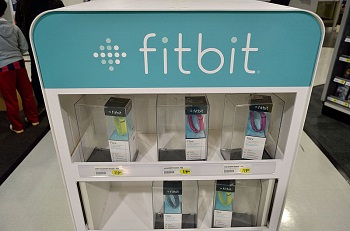Zynga sets its sights on the growing mobile sector
Mobile and social game developer Zynga has announced that it has yet another new CEO. Frank Gibeau, former vice president of mobile games for Electronic Arts, has become the developer’s latest CEO. Mark Pincus, the founder and current CEO of Zynga, will remain as an executive chairman of the company after Gibeau takes the position. Appointing Gibeau as the new CEO highlight’s Zynga’s efforts to focus more heavily on the mobile space, which the company had moved away from in the past.
Mobile gaming continues to grow in power
Mobile gaming has become a very powerful force in the overall game industry. This fact has lead several companies, including prominent developers Nintendo and Konami, to focus more heavily on developing mobile games. Zynga has specialized in social games for some time, producing titles that can be played of Facebook. These games highlight interaction over social media networks, but this is not something that is foreign to mobile gaming. Consumers playing games on their mobile devices can easily interact with one another, making the mobile gaming space just as social as any other gaming sector.
Gibeau may lead Zynga to success
 Zynga intends to provide consumers with an innovative experience when it comes to mobile gaming. Gibeau will lend his expertise in this regard, as he has more than 25 years of experience in the game industry. Gibeau has been involved in the mobile space for a significant amount of time and believes that interactive entertainment can be better, especially on mobile platforms. Zynga already has a strong consumer base to draw from, but the company has been heavily criticized for the decisions it had made in the past.
Zynga intends to provide consumers with an innovative experience when it comes to mobile gaming. Gibeau will lend his expertise in this regard, as he has more than 25 years of experience in the game industry. Gibeau has been involved in the mobile space for a significant amount of time and believes that interactive entertainment can be better, especially on mobile platforms. Zynga already has a strong consumer base to draw from, but the company has been heavily criticized for the decisions it had made in the past.
Mobile gaming may be a difficult market for Zynga
Zynga has managed to find success in the social gaming market with only a very small number of games. While the developer has produced many such games, only a few of them have managed to become universal successes. This may be mirrored in the mobile space, where consumers have proven themselves to be fickle when it comes to the type of mobile games they want to pay and, more importantly, pay for.

 That said, Europe, Africa and the Middle East, combined, made up 12 percent of the company’s revenue. Still, that represents a 191 percent year over year growth in Q4 for those regions, revealing a tremendous rise in popularity within those parts of the world. This indicates that 2016 may be seeing action in far greater markets than the United States. According to BI Intelligence research analyst, Jonathan Camhi, the company’s wearables are seeing considerable traction being gained outside the U.S.
That said, Europe, Africa and the Middle East, combined, made up 12 percent of the company’s revenue. Still, that represents a 191 percent year over year growth in Q4 for those regions, revealing a tremendous rise in popularity within those parts of the world. This indicates that 2016 may be seeing action in far greater markets than the United States. According to BI Intelligence research analyst, Jonathan Camhi, the company’s wearables are seeing considerable traction being gained outside the U.S.